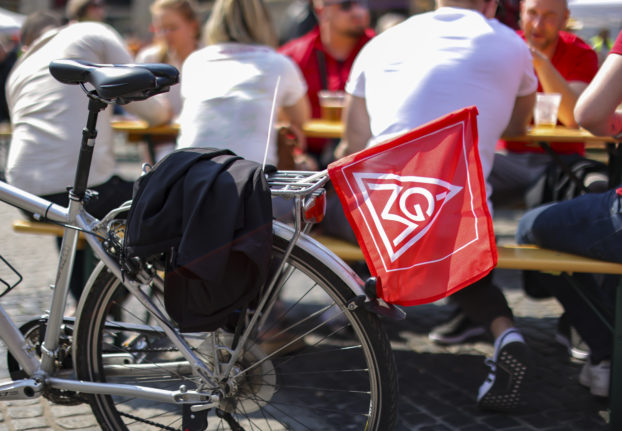For those who haven’t heard about this one, a Latvian company, Laval, won the contract to build a school in Vaxholm, near Stockholm. The company paid its Latvian workers Latvian wages, but Byggnads argued that it should pay Swedish wages and sign a collective agreement. The union started a blockade of the site, leading to Laval filing for bankruptcy.
The government has supported the union all the way, but this week European Commissioner Charlie McCreevy said that he would oppose Byggnads when the case came to the European Court.
This issue is not cut and dry. There is an understandable desire on the part of Swedish building workers to protect their wages against cheap competition, or “wage dumping”.
Sweden also has a duty to allow people from other EU countries to live and work here. This is good for Sweden’s economy, and presents a challenges to Swedish companies to become more innovative and more competitive. More to the point, it is what Sweden signed up to when it joined the EU.
But perhaps the most interesting question the affair raises is this: with the enormous influence of the union movement on Swedish politics, how do we know whose interests the government is acting in?
The Social Democrats, who were founded out of the union movement have ruled Sweden for 64 of the last 75 years and received 85 million kronor from union organisation LO (of which Byggnads is a member) during the 2002 general election.
So when Sweden’s employment minister Hans Karlsson prefers to defend the protectionism of Byggnads rather than the principle of free movement of labour within the EU, it is reasonable to question his motives.
Again, when workers on the T-bana, Stockholm’s metro system, started illegal wildcat strikes this week, where was the condemnation from the Social Democrat administrations both in the City Hall and in central government?
A trade union organisation is just as much of a special interest group as any company. It may represent many of its members, but it does not represent the electorate as a whole. Therefore it should still be treated as one voice among many, like any other pressure group.
It could be that in the Vaxholm case Hans Karlsson is simply persuaded of the union’s argument. But his position would be a lot more credible if the organisation he is defending wasn’t the one that put him in his job.


 Please whitelist us to continue reading.
Please whitelist us to continue reading.